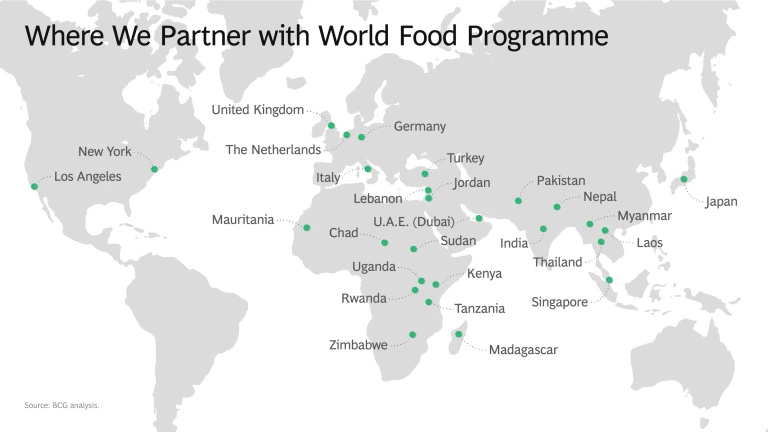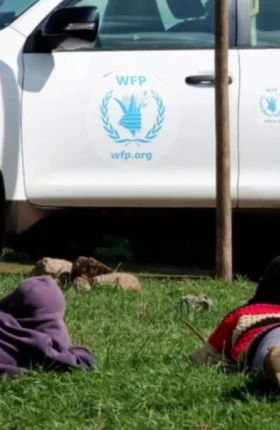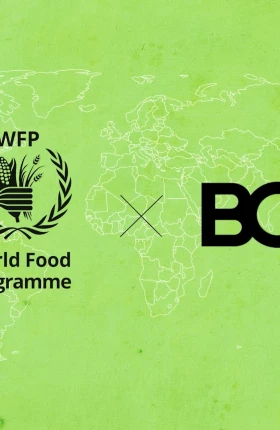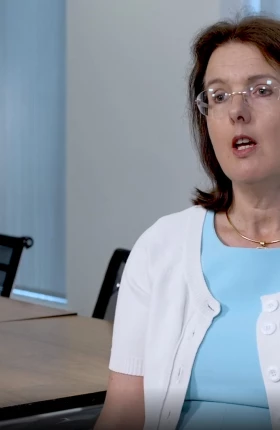For nearly two decades, BCG has supported WFP to enhance its effectiveness on a wide range of strategic, operational, and organizational issues. BCG has worked alongside WFP on the highest priority topics for the organization.

For example, our joint initiatives have included transforming WFP's school feeding program for greater impact—an effort that reaches more than 16 million children across 63 countries. And we've helped further develop alternatives to traditional food assistance, such as the use of cash and vouchers instead of direct food aid in those instances when food is available yet inaccessible to the poor. We also supported WFP in designing a system for emergency food reserves.
BCG has also helped WFP enhance its organizational effectiveness. By calculating the return on investments in emergency preparedness, we have helped WFP prove the value of preparedness and attract more governments and donors to act on this critical effort. And finally, we have helped WFP develop its knowledge management capabilities.
We provide more detail on another project below, illustrating how we collaborate with WFP and the impact of our joint efforts.
BCGers Share Their Experiences with World Food Programme
Sisi Pan, Principal, New York and Nairobi
What role did you play in BCG’s work with WFP?
BCG helped redesign WFP’s core functions of grant management, planning, and performance reporting through country-led solutions and pilot processes (in Tanzania and Uganda, for example), supported by HQ and regional bureaus.
What was the impact of your work?
The goal is for WFP to deliver its mission of achieving zero hunger more efficiently and effectively by transforming core processes, roles, and systems based on smart simplicity and industry best practices. Importantly, our effort’s country-first approach also “changed how WFP does change.” We’ve empowered those working most directly with WFP’s beneficiaries to design solutions, with HQ and regional teams playing more enabling roles.
What did you personally learn from the experience?
It is difficult to design for an organization that needs to be highly responsive yet sustainable, consistent globally yet highly contextualized. But if you talk to any WFPer, the optimization equation becomes simple: it’s all about the impact on beneficiaries. That is why our joint effort generated solutions from the field rather than the center.
Pelumi Bamgbala, Consultant, Lagos
One of the most impactful projects I've worked on was rolling out a stunting-free model across 42 villages in Rwanda. We also developed the roadmap for the Rwandan government to deploy this model nationwide. Being on the ground showed me the real impact of our work with WFP, which goes beyond the money invested and efficiency achieved. It showed me the reality of the millions of lives being affected. Working on this project helped realign my perspective on what really matters and how I can contribute to advancing equitable livelihoods.
Toivo Hensgens, Project Leader, Nairobi
What role did you play in BCG’s work with WFP?
I was working hand-in-hand with the Ugandan country office to redesign, simplify, and pilot WFP’s annual planning and reporting processes as the coronavirus hit. At that point, we pivoted to helping the Kenyan country office with economic-shock modeling to support discussions with the government on the need for, and effective implementation of, social safety nets.
What was the impact of your work?
Internal process simplification and analytics are just two examples of how WFP continues to be pragmatic, modern, and nimble above and beyond what one might expect from a large UN agency. The organization is able to maximize the impact it brings to beneficiaries, regardless of an ever-evolving funding situation.
What did you personally learn from the experience?
Nothing beats a clear mandate and pragmatic mindset.
Teodora Fantigrossi, Consultant, Casablanca
What role did you play in BCG’s work with WFP?
I supported WFP on two occasions. First, I worked with the WFP and the Rwandan government to accelerate efforts aimed at reducing stunting (chronic malnutrition). This meant understanding key barriers, designing and piloting a new on-the-ground “stunting-free village” model, and supporting implementation across the country. Second, during the initial coronavirus outbreak, I worked with our team to develop a forecasting tool to assess the socioeconomic impact of COVID-19 on the most vulnerable populations in Kenya and to design effective cash-transfer programs.
What was the impact of your work?
In the first case, the impact we had was extremely tangible. After six months, we saw a decrease in stunting cases in the village we tested our model in, along with a greater community awareness of stunting and best practices to prevent it. After two years, the pilot has been expanded, and nationwide rollout is due to be completed by the end of 2021. The rollout is expected to double the rate of stunting reduction, preventing additional ~100,000 stunting cases in less than three years.
In the second case, we supported WFP with our COVID-response tool to identify population categories that were most impacted by the crisis. This means having a granular view of the people most at risk of falling below the poverty line and related demographic information. This makes it possible to target efforts with extreme precision where the help is most needed.
What did you personally learn from the experience?
Working with WFP taught me the importance of on-the-ground work. As consultants, we tend to work with slides and spreadsheets behind our screens—but addressing issues as complex and deeply rooted as malnutrition requires us to go deeper and truly understand the local context.
Our diagnostic phase was carried out by talking to several community members, leaders, and experts across Rwanda. This allowed us to understand the real barriers to stunting reduction. We designed and tested our “stunting-free village” by going week after week to a village in northern Rwanda armed with paper, scotch tape, and posters to test and refine the model with the local community to make sure what we were designing was fit for purpose.
Kader Laraichi, Data Scientist, Casablanca
What role did you play in BCG’s work with WFP?
BCG created a social-safety-net simulator that would help predict the amount of people and households that would fall under the food poverty line in Kenya as a result of the pandemic. My role as a data scientist was to help streamline and combine an epidemic, economic, and social model into BCG’s proprietary tool: DAIS.
What was the impact of your work?
Thanks to the work done by BCG, WFP can approach governments during and after a crisis with tangible numbers at their disposal. They can also plan their funding campaigns depending on the different scenarios that the tool is outputting.
What did you personally learn from the experience?
This was the first project in which I used data science to generate social impact. Going from such a macro subject to detailed models was a challenging feat, and team collaboration was essential to the success of the project.
Learn More About BCG’s Partnership with WFP




Meet Some of Our Experts Working with the World Food Programme








